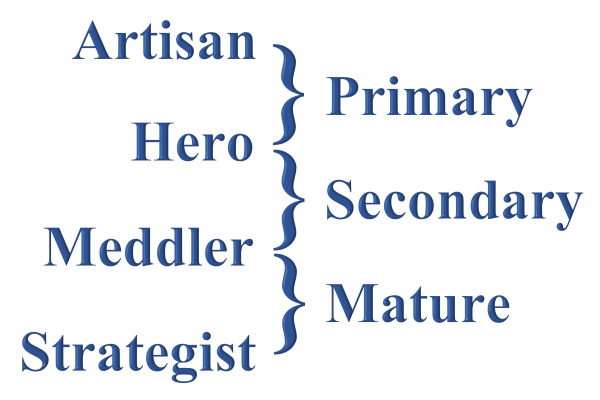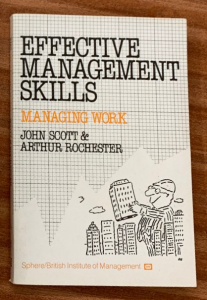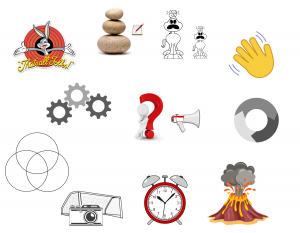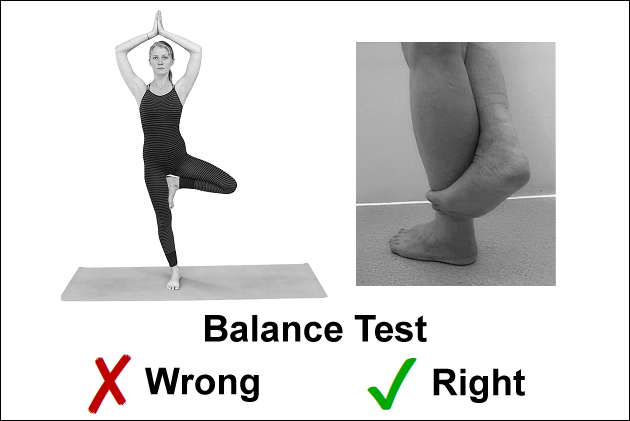Do you know where to find the secrets of success? The truth is that there are no “secrets”, they are all in the public domain, spread across hundreds of books, videos, seminars, and research papers.
So they are not secret, and anybody can find them if they know where to look. I started looking in 1997 when I started my first company. I was convinced that there was some clever trick that I was missing. Surely “running your own business shouldn’t be this hard” I thought!
I was lucky and I stumbled across one of the “secrets” in 2004, it had only taken me 7 years to find the start line! Then I found some more of the “secrets” .
Let me share that first “secret” with you.

In the 1970s and 1980s Colin Barrow was a captain of industry and later worked for ten years as Head of the Enterprise Group at the Cranfield School of Management. He developed the “Artisan theory of business growth” which says that there are only four types of business. He also said that without help, some businesses reach one level and never progress further.
Artisan
You are the business and the business is you. You are the artisan.
Hero
You’ve grown your artisan business to a headcount of something like 5 to 10 people. You know everybody and they all know you. It’s you that runs the team, you have the most experience and the most skill. You’re the only one who can pull everything together, and without you the business would fail. You are the hero.
Meddler
You’ve grown your hero business to a headcount of something like 20 to 30 people. You still know everybody personally and they all know you. The team has enough experience and enough skill to be able to run the whole operation without you. But it’s your baby! You built it from scratch and you can’t let it go. So you keep getting involved in everything, using the mindset of the artisan. Unintentionally, you are inhibiting further business growth. You are the meddler.
Strategist
By a stroke of good luck, or a wise decision to buy some professional advice, you’ve been able to progress beyond the level of meddler. You are now the captain of your ship and you spend your time on the bridge. You could go down to the boiler room and stoke the boiler if you wanted to, but you don’t. You have others who can do that more effectively than you can. Your focus is on commanding things, and you hire other commanders to help you at board level. Your sentimentally is under control, your business is no longer a baby, it’s mature, and now there is no limit to how big your business can grow. You are the strategist.
Making The Transition
The workforce size given above is a rough guide, and the boundaries between the four types of business may be flexible. What is certain though is that there are transitions which can take you from one level to the next, the primary, the secondary and the mature transitions. Do you need a program to help you with one of those transitions? More importantly if you want to shorten the meddler stage, or skip it altogether, then I can help.
Barrow wrote many books. My parents taught me how to venerate books and care for them, and my university tutors taught me how to conquer books and how to make them work for me. I’ve learnt more about Barrow’s methods from seminars than I ever learnt from the books. Nonetheless, I do read lots of books, by a lot of authors, and I prefer my books on paper!
I’m a prolific reader of non fiction, writing my own comments and doodling in the margins of paperback books, using highlighter pen and adding sticky flags to the best bits. Over 300 books so far, 300 seminars, 300 YouTube videos, and lots of journals, conferences, trade fairs and symposiums. You don’t have to do all of that, I’ve done that already, I’ve found the secrets (that took 25 years) and I’ve distilled the best bits into a 12 month program.
My current portfolio includes three successful businesses of my own, and I’ve been involved in dozens more, helping clients to achieve their goals.
I help small businesses make more profit in less time. Interested?
www.secretsofsuccess.co.uk




